Rhode Island Bat Removal
Welcome to Rhode Island Bat Removal! We are Rhode Island bat removal specialists. It is important to know that bats are protected by Rhode Island law, and are beneficial animals to have in the environment. We do not kill any bats during our bat removal process. Never hire a pest control company or anyone who says they are a Rhode Island bat exterminator. For correct and effective bat removal, you want a company that specializes in humane bat colony extraction. Our process is not only the only legal method in Rhode Island, but it is the most effective. We have a 100% success rate in our bat control process. We perform our industry-best 32-point inspection of your house or building, and seal shut all bat entry holes down to 1/4 inch as part of the removal process, during which we remove the colony via special one-way exclusion devices specific to your architecture. Once all bats are safely out, we permanenetly bat-proof the structure. We also provide guano (bat droppings) removal and decon. Click on our Rhode Island Bat Control Prices page to find out more about our prices for bat control work. We work 24/7/365, and would love to talk to you about your bat problem. Call us any time at 401-404-5091 to discuss it, discuss our pricing, and if you wish, set up an appointment at your convenience, often same-day.
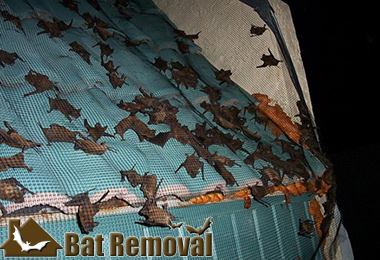
Rhode Island Building and Attic Inspections

No-kill Rhode Island Bat Extraction
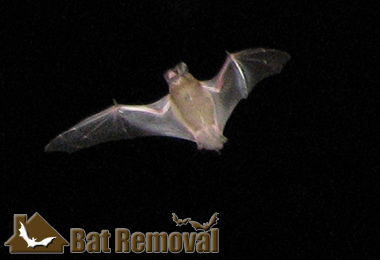
Guano Cleanouts - Serving all of Rhode Island
Call 24/7 to discuss your bat problem.
Same-day or next-day appointments.
32-point inspection of your property.
Written estimates for bat removal project.
Fully state licensed and insured.
Residential and commercial service
100% no-kill Rhode Island bat extraction
Complete bat-proofing of your building
Compliance with all Rhode Island, federal laws
Guano removal and attic decontamination
Our Service Range - 401-404-5091
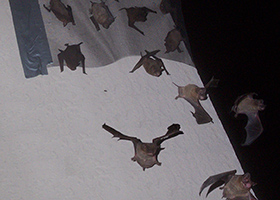
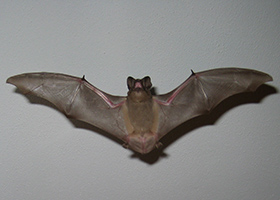
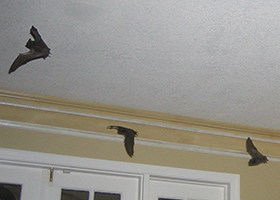
4 Natural Enemies of Bats
Some people will be scared to encounter a bat in their property. Due to the way they have been depicted on movies, others thought that bats will naturally drink human's blood. Only three among the 1,200 species of bats will drink blood. Their predators on the other hand will be ready to drink their blood and devour their flesh. In fact, the lifespan of the bats living in the wild is significantly shorter compared to the animals in the captivity. This is since the bats in the wild is regularly exposed to the threat of their enemies.
What Eat the Bats
The amazing radar of the bats will sometimes be ineffective against the agile predators. Some predators will swoop them without any warnings. They will not even give the bats with a chance to react to their attacks.
1. Mammals
There are different mammals that will enjoy the taste of the bats. This will include the raccoon, minks, and the weasels. These animals are also known for their incredible climbing skills that enables them to climb the steep roosting site of the bats. They will be attacking the colony of the bat during the day while the bats are resting. Some of them will be waiting below and will wait for the bats that will fall on the ground. They can also attack the bats when they are emerging out of their nest.
2. Birds
Since the birds can fly, they can attack the bats while they are in flight. Some of the birds that can attack them include the hawks and owls. These birds will ambush the bats when they are entering or leaving their cave. Since the entry point is too narrow, the flocks of bats will gather together which makes it easy for the birds to catch them.
3. Arachnids and Insects
While the bats are known for eating insects, there are also insects and arachnids that can eat them. You may think that bats are large. However, they only appear large due to the size of their wings. If you look at them closer, you will notice that the body frame of the bat is small. In fact, the average weight of their body is less than half an oz. A giant centipede will crawl to the ceiling of the cave that will attack the bat's head, incapacitating them in the process. They will eventually fall on the ground giving the centipede an opportunity to eat them. Spiders can also eat the bats. Usually, the tarantulas around 4-6 inches will use their web to restrict the movement of the bats.
4. Humans
In some regions, eating the bats is a part of their culture. In countries such as Africa and Guam, it is common for them to cook bats. However, this also increases the transmission of the disease carried by bats.
Other animals can also eat the bats. There are fish that can immediately grab them when they are foraging foods. Snakes are also usual hunters of bats.

